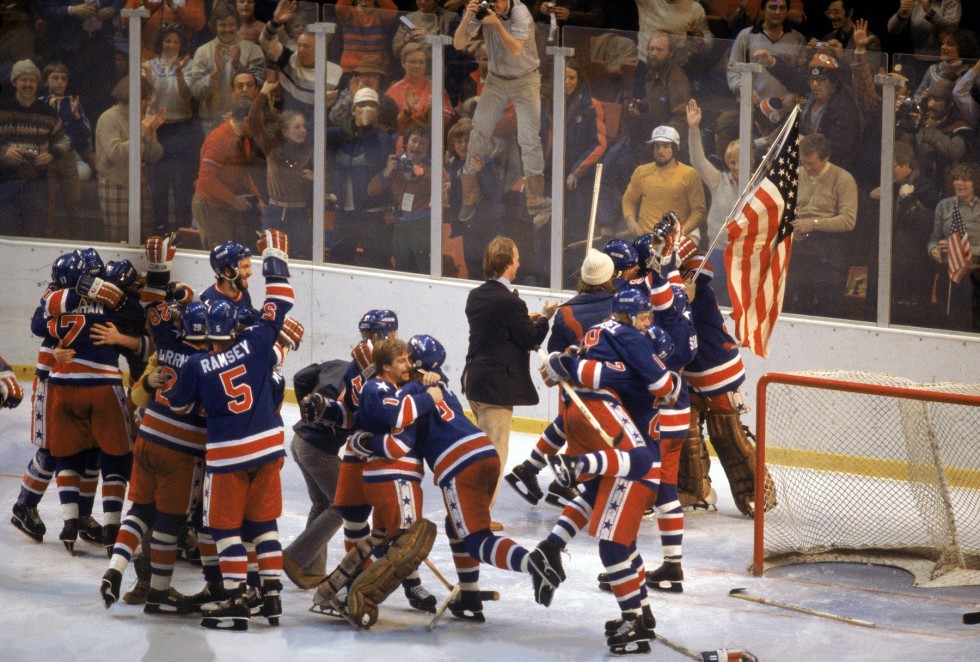
In the spirit of the 2018 PyeongChang Winter Olympics, here are a few Winter Olympic movies with lessons for white Christians:
Cool Runnings. Yes, the movie about the 1988 Jamaican bobsled team is implicitly a plea for multiculturalism. Or is it? The film portrays the presence of black bobsledders as innately humorous. I doubt that Wakandans would stand for such a portrayal today. The mostly innocent humor in the film adorns the story of a group whose culture was deemed incompatible with their pursuit of success in the Winter Olympics. It wasn’t the white Olympians who looked down on the Jamaicans’ culture — it was Derice the team’s captain who aped the Swiss and derided his teammates’ Jamaican-ness. One of the pivotal moments of the film occurs after the team’s disastrous first heat at the Olympics, in which their bobsled failed to cross the finish line. The team’s captain resumed his film-long pursuit of imitating the Swiss team (which in the movie’s universe was the standard for bobsledding excellence). The team had adopted the Swiss team’s culture even to the point of speaking their German language while preparing to begin each run down the bobsled track. But as teammate Sanka reminded Derice, it wasn’t by being Swiss that the Jamaicans had gotten to the Olympics, nor was it for Switzerland that the Jamaicans would compete at the Games. “All I’m saying, mon, is if we walk Jamaican, talk Jamaican, and is Jamaican, then we sure as hell better bobsled Jamaican.” This is ethnic pride, and it is as universally applicable to Western whites as it is to Jamaican blacks. White people in general, and white youth in particular, are as eager to imitate non-whites as Derice had been eager to imitate the Swiss bobsledders. To learn technical wisdom from others is one thing, but to substitute some other ethnic identity for your own is self-destructive and unnecessary. While Disney wrote several multiculturalist lines into the film, the larger lesson of the film was one of ethnic, national pride. Whereas whites used to teach that lesson, now we need to relearn it. Parental caution is required.
Miracle. The movie based on the true story of the 1980 U.S. men’s hockey team is about a group of hard-working white boys from Minnesota, Michigan, Wisconsin, and Massachusetts. Along with their coach Herb Brooks, they fused into a cohesive group to defeat the world’s greatest hockey team — the Soviet hockey team — at a time of intense national self-doubt. The lesson of Miracle is typically American, teaching that hard work and patriotic ambition can help a group overcome a better financed, more experienced opponent. Isn’t that what we face today in our struggle against globalists in control of every major Western institution? To prove the point, one of the film’s trademark scenes is when Brooks has the players, who had identified themselves with their college hockey teams, understand that they weren’t playing for themselves, or even for their universities. They were playing for their country — their people. The PG film is not suited for young children. Also of note, a 2014 documentary about the defeated Soviet team, Red Army, is interesting and worth the watch.
Eddie the Eagle. Just as in Cool Runnings, a guy who had no national team but was determined to get to the Olympics did so…by inventing his own “team” and learning a sport from scratch. Along the way, Eddie Edwards had to overcome resistance from his parents, his country’s Olympic board, and of course his own personal flaws. The inspiring and comical story of Edwards as the first ski jumper in British history makes for a copacetic biopic for white kids determined to succeed. Great for teens or adults who feel particularly awkward and need a boost of self-confidence. The movie was mostly clean but parental caution is advised.
The Cutting Edge. This older teens-and-up movie is about a great hockey player who goes partially blind in one eye and can’t play hockey anymore, and a great pairs figure skater who failed on the big stage and can’t keep a competition partner. This film shows the failures of feminism, early 90s style. The female skater attains her greatest accomplishment not by succeeding at the Olympics (though she does), but by fully trusting herself to a man she loves. Likewise, the male hockey player-turned-figure skater achieves his career dreams at the Olympics both by being a great athlete, and by loving and protecting the woman. A nice love story that deflates feminist careerism and male carousing simultaneously, and promotes heterosexual monogamy between two physically fit white people. These days, that is a rare thing indeed.
Have any other recommendations or opinions? Leave your two cents in the comments section below.
| Tweet |
|
|
|




